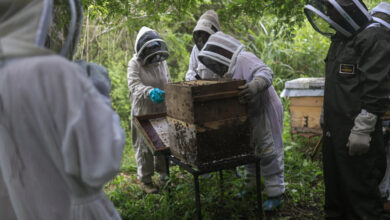Greater Procrastination and Anxiety in Women, Effects of the Pandemic?
COVID-19 has led to a global mental health crisis and is fueling one of the most damaging human tendencies: procrastination.

The Woman Post | María Carolina Rivero
Listen to this article
Procrastination is rooted in our evolutionary development and there are two key parts of the brain competing for control. Although the advent of vaccines has offered hope as this devastating pandemic continues, a year after the World Health Organization (WHO) declared it a global pandemic, confinement, and isolation are likely to continue for months as we create group immunity. That's why it leaves many people facing the fear and frustration that often allow procrastination to win the battle in our brains, according to Nicole Johnson of the National Geographic web portal.
Women with ADHD: Procrastination?: In my case, it is an insurmountable mountain and I do get exhausted… http://bit.ly/bU7e78 #adhd #women
— Women with ADHD (@womenwithadhd) February 21, 2010
Negative Impacts of Procrastination
According to the psychologist Inés Zulueta Iturralde, this impact can be wide, depending on the frequency and intensity of the behavior. One of the most serious effects occurs on our health, for several different reasons:
1. The increase in anxiety and remorse for having postponed an important task generates a state of stress that decreases our immune system.
2. Stop doing other important tasks for our health by not having time, such as exercising, getting enough sleep, or taking care of our diet.
3. Decrease our performance at work or studies and set aside activities important to us.
4. Experiencing increasing negative emotions, procrastinating changes the way we see ourselves: We perceive ourselves as less effective and our self-esteem decreases.
Colombia, Greater Procrastination in Women Than in Men
In research conducted by Diana Pardo, Luisa Perilla, and Cristhian Salinas, called "Relationship between academic procrastination and anxiety – trait in psychology students," published in the Journal Hispanoamerican Notebooks of Psychology, described the relationship between psychological variables; academic procrastination and anxiety trait and the influence of some sociodemographic variables in relation to the postponement of academic activities, for which two instruments were applied: the Academic Procrastination Scale (EPA) adapted by Oscar Alvarez and the Self-Descriptive Inventory of Anxiety Trait State (IDARE).
Also read: THE LONELINESS OF LOCKDOWN COULD LEAVE PEOPLE ‘STUCK’
In this line, the exhibition consisted of psychology students in the city of Bogotá, Colombia; of which 73 women and 27 men, aged between 18 and 37, where the anxiety-trait and academic procrastination variables were shown to have a positive correlation, however, sociodemographic variables in relation to academic procrastination did not have statistically significant differences.
A recent study published in Social Cognitive and Affective #Neuroscience is the first to suggest that genetic, anatomical, and functional differences can cause predisposition towards #procrastination in women https://t.co/zCwnuoKC9j pic.twitter.com/IiuLfYKmbZ
— Oxford Medicine (@OUPMedicine) September 12, 2019
COVID-19 in the Context of Procrastination
During the coronavirus crisis, you may have noticed that your productive capacity has been diminished. Difficult and tedious activities require access to our ability to self-control, which are limited resources and requires rest to be recharged. Disorder in routines, loss of social and leisure activities, including anxiety and uncertainty increase stress and prevent us from recharge. That is why there is a possibility that they may feel overwhelmed or unable to respond, which impacts the capacity for work and effort.
How To Avoid Procrastination in Women?
To help you avoid procrastination and blockade, CEU Universities which is the largest educational group, which has 3 universities Madrid, Barcelona, and Valencia recommend the following strategies:
1. Be aware of what's happening to you.
2. Change your perspective.
3. Commit.
4. Find an environment that favors concentration.
5. Focus on what you want to do at all times.
6. Get involved with and interact with your teammates.




